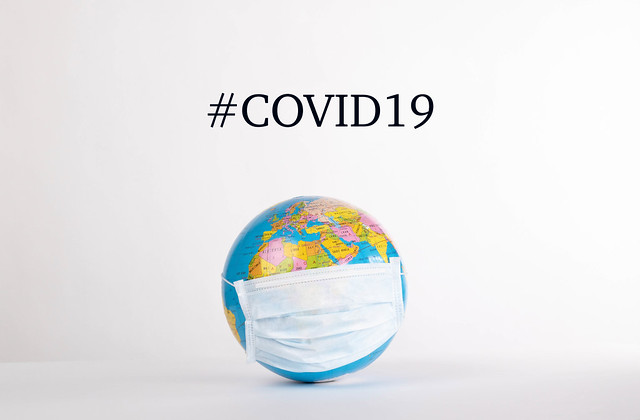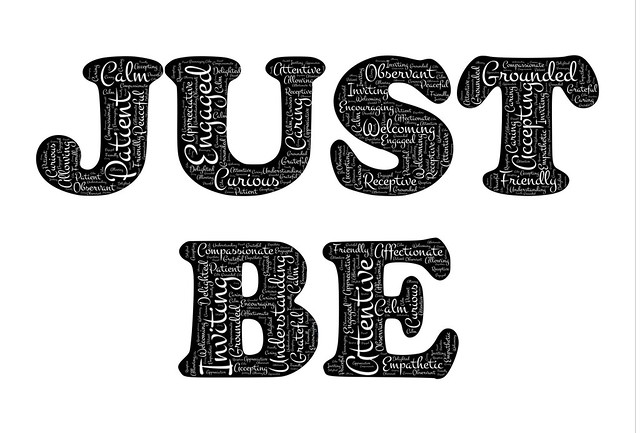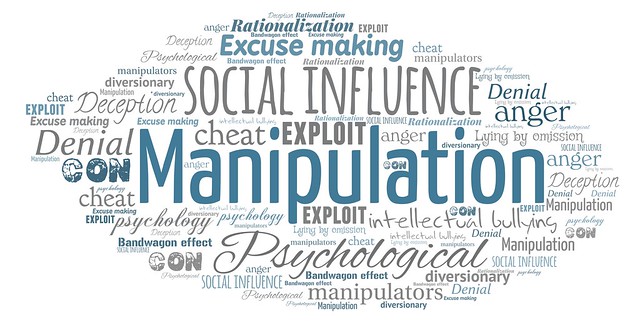blog
What makes a high-performing team – and how does team ethos impact delivery?
Coaching Through COVID
Coaching Through COVID is the new name for COVID-19 Rapid Response Coaching (see my blog here). This pro bono coaching is for NHS staff in order to support them to find meaning, learning and growth from their experiences, attend to their own wellbeing, and deliver sustainable care to those they serve.
Speed of response
By 29th April 2020 – six weeks after the programme was set up, and five weeks after start of the first lockdown in the UK, with hospital admissions rising alarmingly – 47 people had had at least one coaching session, and the feedback has been very positive from coachees who, for the most part, had never had any contact with coaching, but who recognised that they needed what it offered them.
All those requesting coaching are being rapidly matched to a coach, and are being contacted by their coach within 24 hours of the match. Coaching is invariably getting under way within days of the first contact between coach and coachee – and the programme is about to expand into another Trust and another hospital within the Trust which is the site of the initial pilot.
A high-quality resource
While it’s still early days, this programme is without question delivering value at a time of considerable stress, anxiety and exhaustion for those NHS staff dealing with COVID-19, including doctors and nurses, midwives and porters, matrons and executives – and many others. The coaching approach means we’re recruiting high-quality coaches at an advanced stage of coaching maturity, supported by teams of wellbeing and trauma specialists. These coaches can provide a skilled listening ear and the capacity to hold the space for whatever the coachee wants to address, without necessarily having any coaching objectives or being attached to a particular process. What coachees bring can include distress, anxiety, overwhelm and sometimes trauma. Inevitably it includes a sense of lack of control and deep uncertainty, which they experience as unfamiliar and which can be very uncomfortable.
A high-performing team
The Coaching Through COVID team has evidenced a high level of performance since its earliest moments, albeit many of the team members hadn’t previously known each other. It’s interesting to reflect on the relationship between the way in which the team (all of whom are giving their services pro bono) functions and why we perform at the level we do.
Team ethos and leadership
The team shares a clear purpose, to which all team members are passionately committed. While the need is clear, nothing is assumed about that need, as it may change over time or over particular groups of coachees: the coachees’ needs give us our agenda, and our response is to be pulled rather than to push.
We are privileged to experience humble and inspiring leadership from Mark McMordie, constantly with an eye both on the present and the future, with a focus on both the big picture (a systemic, creative and far-reaching view) and the operational detail to implement it, and attention paid to team members’ wellbeing and self-care so that we can sustain ourselves as well as the programme. This is distributed leadership in action, with all team members feeling free and trusted to take initiative.
There are no empires or egos, and no claim to ownership of any part of the programme.
Processes are as simple and efficient as they can possibly be.
Psychological safety, compassion, and self-compassion
The team functions with a high level of psychological safety, compassion, self-compassion, listening to each other, and the agility that comes from the capacity to constantly learn and adjust. This means team members are comfortable expressing and being themselves, without fear of retribution for mistakes or concerns they express – so that levels of trust are high and anything that may be going wrong can be addressed early.
One of the results of the team ethos is that we’ve been able to smoothly and quickly serve our client group, enabling coachees to step back, pause, take stock, gather themselves together, re-resource themselves and get back into the fray.
The programme
Key to our success to date has been a champion within the client group of the Trust where we’ve run our pilot – a champion who’s known and trusted within her anaesthetics department, who consistently promotes and represents the programme in various forums, and who can translate messages from that client group back to the team so that we, in turn, can re-shape the offer on an ongoing basis.
The project was launched on the basis of the WHO recommendation for speed not perfection: as long as we’re doing no harm, we believe it’s better to act where we see the need than to wait until we’re sure we’re right. The World Health Organisation’s (WHO) emergencies programme Executive Director Michael Ryan has stressed that “perfection is the enemy of the good,” and if people worry about being “right” over responding quickly, the virus will be more difficult to contain and combat. Equally, we believe that the impact on those caring for COVID-19 patients (both directly and indirectly) needs to be recognised as soon as it emerges (which will very likely mean also for some time once the peak – or peaks – of the pandemic has passed).
Feedback
Coachees’ feedback has mentioned both how responsive coaches have been to the demands of their crazy schedules and what a significant difference their coaching has made to how they resource themselves, how they stay resilient, and how they manage demands and dilemmas which may be both new and complex. They’ve said:
’Just wanted to highly recommend this programme: I’ve just had my 2nd session with my coach and all the misconceptions that I had about coaching have disappeared. I’ve found the programme really helpful so far and it has definitely helped me find order in the chaos!’
‘Having had my second coaching session yesterday, I am amazed by what the programme offers. Pure life changer and I’m so pleased I signed up. ? Suddenly, I can identify resources already available to me that I can utilise to build resilience.’
‘Just wanted to say that I feel like I’ve really struck gold with my coach. Had my second session yesterday and felt so much better afterwards.’
What next?
While we’re enormously encouraged by our success to date, we’re constantly on a path of learning, experimenting, learning from the experiment, adapting, learning and experimenting again. We’re focused on reaching as many people as possible with a high-quality service – and we’ll be here for as long as the need is here.
If you’re an NHS worker and you’d like to sign up to be coached, please click here
If you’re a coach and you’d like to offer your services on this programme, please complete and submit this coach application form
Photo by The National Guard via Compfight
A high-performing team through COVID-19
While it’s still early days, this programme is without question delivering value at a time of considerable stress, anxiety and exhaustion for NHS staff dealing with COVID-19. High-quality coaches at an advanced stage of coaching maturity are supported by teams of wellbeing and trauma specialists, and the core team shares a clear purpose, to which all team members are passionately committed. We are privileged to experience humble and inspiring leadership from Mark McMordie, constantly with an eye both on the present and the future, and with a focus on both the big picture (a systemic, creative and far-reaching view) and the operational detail to implement it, and attention paid to team members’ wellbeing and self-care so that we can sustain ourselves as well as the programme. This is distributed leadership in action, with all team members feeling free and trusted to take initiative, and all working with agility and flexibility. The outcomes of the team ethos are showing in coachees' positive feedback.
Read more »Pro bono NHS coaching for COVID-19
In COVID-19, NHS medical staff are facing an encounter with an illness whose scale and rate of transmission is nothing like anything they’ve ever encountered before. They are frightened, stressed, anxious, exhausted from working long shifts in a new, uncertain yet threatening context, and in some cases, they're traumatised. The pro bono coaching programme COVID-19 Rapid Response Coaching (C19RR), set up in mid-March, is a professional, high-quality coaching programme, supported by supervision, trauma specialists, counsellors and therapists, and is being rolled out at speed. It has started with a pilot at a large London teaching hospital, and demand is growing exponentially.
Read more »Never enough time
The underpinnings of clients' 'too little time' often turn out to be something from a completely different source, such as patterns related to taking responsibility, unclear priorities or unclear purpose, being distracted by the short-term rewards of 'helping', or aiming for perfection. The costs of striving to fit an unrealistic amount of work into too little time can include stress and exhaustion without ever feeling you've got anywhere. So struggles with time are often actually struggles with embedded patterns of thinking, behaviour and loyalties. Gaining insight into those patterns and so giving oneself more choice is the key - and fundamental to that is taking time for honest and courageous reflection, either alone or with a skilled coach.
Read more »Seeking momentum
For momentum to build and sustain, whether for growth, cutting costs or increasing profit or benefit, organisations need their people to be aligned in their purpose and focus, and they need their leaders to inspire them and keep them on track. Momentum seems to me not be a linear process, but rather a complex process – and leaders sometimes forget to what extent the pace and the momentum inevitably create disruption and turbulence, both of which inhibit the momentum. The effort to achieve momentum may be experienced as turbulence for some time before there’s any sense of things settling into a pattern, and particularly any sense of wellbeing with and within that pattern. People struggle to build momentum while things feel turbulent or unstable: momentum and turbulence are uneasy companions. Leaders need to anticipate this process as part of their planning for the momentum they want.
Read more »Presence and gravitas
Leadership is at least as much about being as about doing - so a leader’s presence and gravitas help resource them to motivate and inspire others. Personal presence is most obviously about authenticity, integrity, non-judgmental awareness of, and openness to, all aspects of one’s environment (internal and external), and acceptance and self-acceptance. Gravitas results in impact and influence through the power of communication and the impact of relationships. It conveys a sense of authority, substance and weight, but also includes humanity and humour. Contributing factors to gravitas are presence, behaviour and expertise – and they are all necessary conditions. In other words, gravitas combines being with doing and communicating.
Read more »Keeping quiet and carrying on - or finding your voice
When most of us see or hear - or indeed experience - behaviour by our leaders at work that lacks integrity, justice or humanity, our usual response is to keep our heads down and carry on, fearing the penalties if we speak up. When we have an emotional reaction to what we've witnesed, as long as we don’t act, both the injustice and our own lack of action may continue to rankle. So we get caught in a double bind: it’s too dangerous to speak out, and it’s too uncomfortable not to speak out. Speaking up can require significant courage. As an executive coach, I’m privileged to be able to provide a safe space in which leaders engage with the risky process of finding their voices, articulating their own truths, becoming more of who they are – and in the process becoming more effective and compelling leaders, invariably with greater integrity and humanity.
Read more »Saying goodbye to the glitter
My article 'Saying goodbye to the glitter' has been published in the November 2019 issue of Coaching at Work. When a very high achiever is obliged, or has chosen, to move on from the peak of their career, the experience can be akin to a bereavement. They can experience their sense of identity, their sense of belonging, their sense of meaning and the knowledge that they are making a difference as at risk: they need to recreate their sense of self.
Read more »The loneliness of the long distance runner
Leaders who are at the peak of their careers, while anticipating or indeed experiencing the fulfilment of achievement, are frequently lonely, isolated and lacking the safety of honest conversations. They feel deeply the pressure of expectation. They have inadequate opportunity amid the intensity of pressure and complexity to have safe conversations in which to maintain or create clarity about what they really want to do. At some point for leaders in all such situations, the need and search for ‘self’ becomes imperative: they need to rediscover - or indeed discover – themselves in order to articulate their choices and manage those choices. They realise they can reduce the loneliness by articulating and sharing ‘what is’ with a compassionate yet challenging coach with whom they feel safe, connected and trusting, and who has no vested interest in their challenge.
Read more »Influencing through compassion
The need for the leader and the manager to influence effectively has always been important. Now, however, their contexts are becoming more uncertain and more challenging. I’m coming across more instances of lack of integrity at senior levels, and this poses a dilemma for the leader who wants to stand up for either the values which their organisation claims or for their own values. I'm finding that an approach for them which embraces compassion – for themselves and for others – can make all the difference.
Read more »Trust and safety in coaching
My article 'Trust and safety in coaching' has been published in the September edition of Coaching at Work. When a client trusts their coach they can feel safe enough to engage with their inner world - and a certain kind of magic can happen. The richness of both dialogue and data that is enabled by deep trust can uniquely empower the client to face difficult or energising truths, and can also stretch the boundaries of what they'd previously thought was possible.
Read more »











